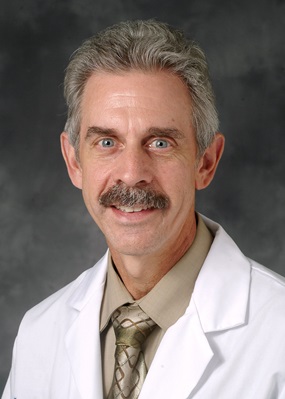Henry Ford Physician Coauthors Updated Treatment and Care Guideline for Hoarseness
March
8,
2018

The American Academy of Otolaryngology—Head and Neck Surgery Foundation has published an updated clinical practice guideline for the treatment of dysphonia, also known as hoarseness. The guideline provides evidence-based recommendations on treating patients suffering from this condition, which is characterized by altered vocal quality, pitch, loudness, or vocal effort that impairs communication and/or quality of life.
The primary purpose of the updated guideline is to improve the quality of care and quality of life for patients suffering from hoarseness, based on current best evidence. A common condition, hoarseness will affect nearly one-third of the population at some point in their lifetime.
Daniel Ouellette, M.D., a Henry Ford pulmonologist and coauthor of the new guideline, says the updated treatment will enhance care for patients undergoing dysphonia treatment.
“The previous guideline was published in 2009,” said Ouellette. “This update incorporates research that has been published since that time, which will support reducing inappropriate variations in care, producing optimal health outcomes and minimizing harm among patients.”
Providers treating patients with this condition should be aware of the revised recommendations for escalation of care, the need for laryngoscopy for persistent hoarseness, and treatment. The guideline recommends physicians perform a laryngoscopy, or refer the patient to a physician who can perform the procedure, when dysphonia fails to resolve or improve within four weeks. If a serious underlying cause is suspected, such as head and neck cancer, the guideline recommends the laryngoscopy be completed as soon as possible, regardless of duration.
To review the updated guideline, visit entnet.org.
The primary purpose of the updated guideline is to improve the quality of care and quality of life for patients suffering from hoarseness, based on current best evidence. A common condition, hoarseness will affect nearly one-third of the population at some point in their lifetime.
Daniel Ouellette, M.D., a Henry Ford pulmonologist and coauthor of the new guideline, says the updated treatment will enhance care for patients undergoing dysphonia treatment.
“The previous guideline was published in 2009,” said Ouellette. “This update incorporates research that has been published since that time, which will support reducing inappropriate variations in care, producing optimal health outcomes and minimizing harm among patients.”
Providers treating patients with this condition should be aware of the revised recommendations for escalation of care, the need for laryngoscopy for persistent hoarseness, and treatment. The guideline recommends physicians perform a laryngoscopy, or refer the patient to a physician who can perform the procedure, when dysphonia fails to resolve or improve within four weeks. If a serious underlying cause is suspected, such as head and neck cancer, the guideline recommends the laryngoscopy be completed as soon as possible, regardless of duration.
To review the updated guideline, visit entnet.org.
.svg?iar=0&hash=F6049510E33E4E6D8196C26CCC0A64A4)

/hfh-logo-main--white.svg?iar=0&hash=ED491CBFADFB7670FAE94559C98D7798)









